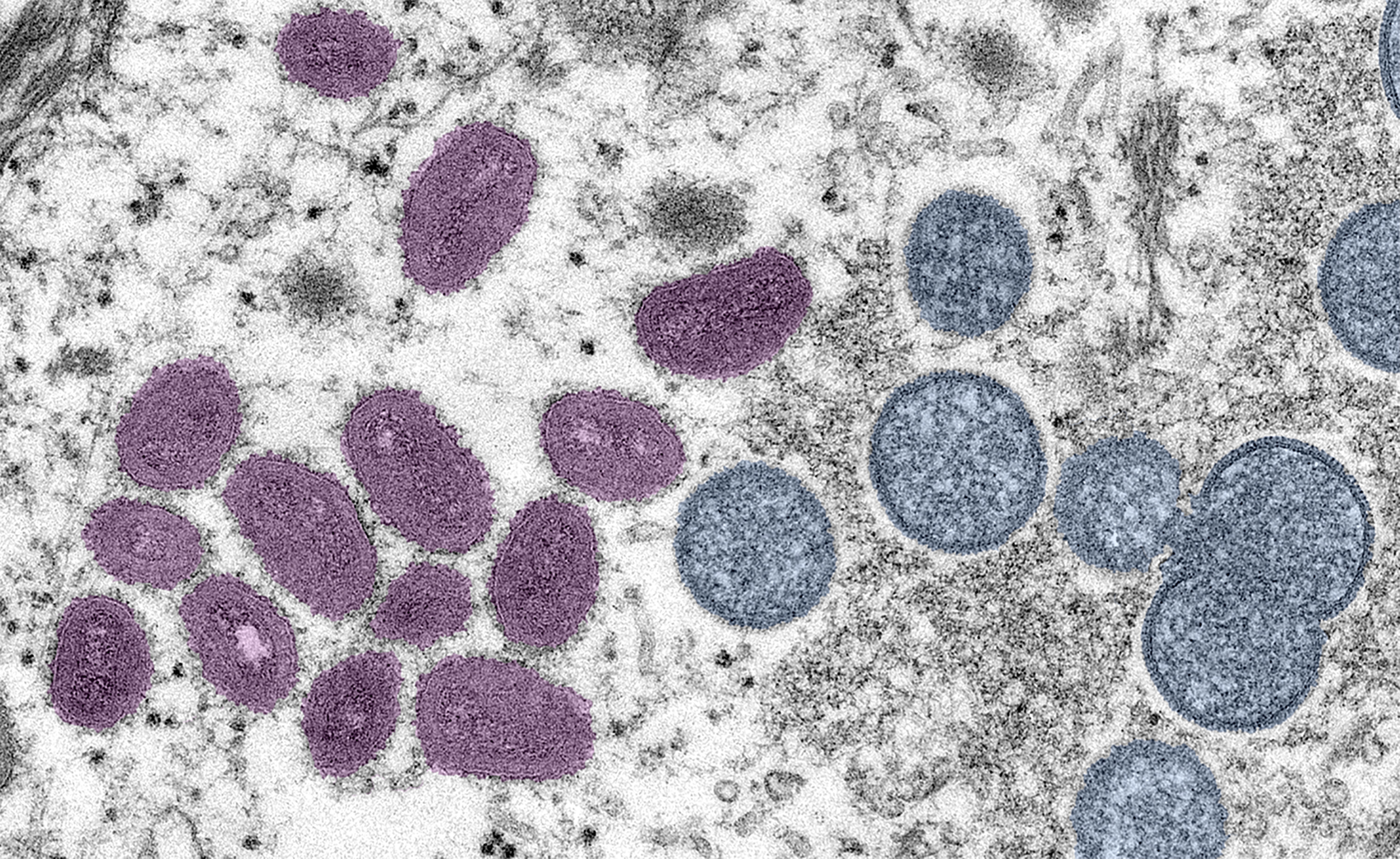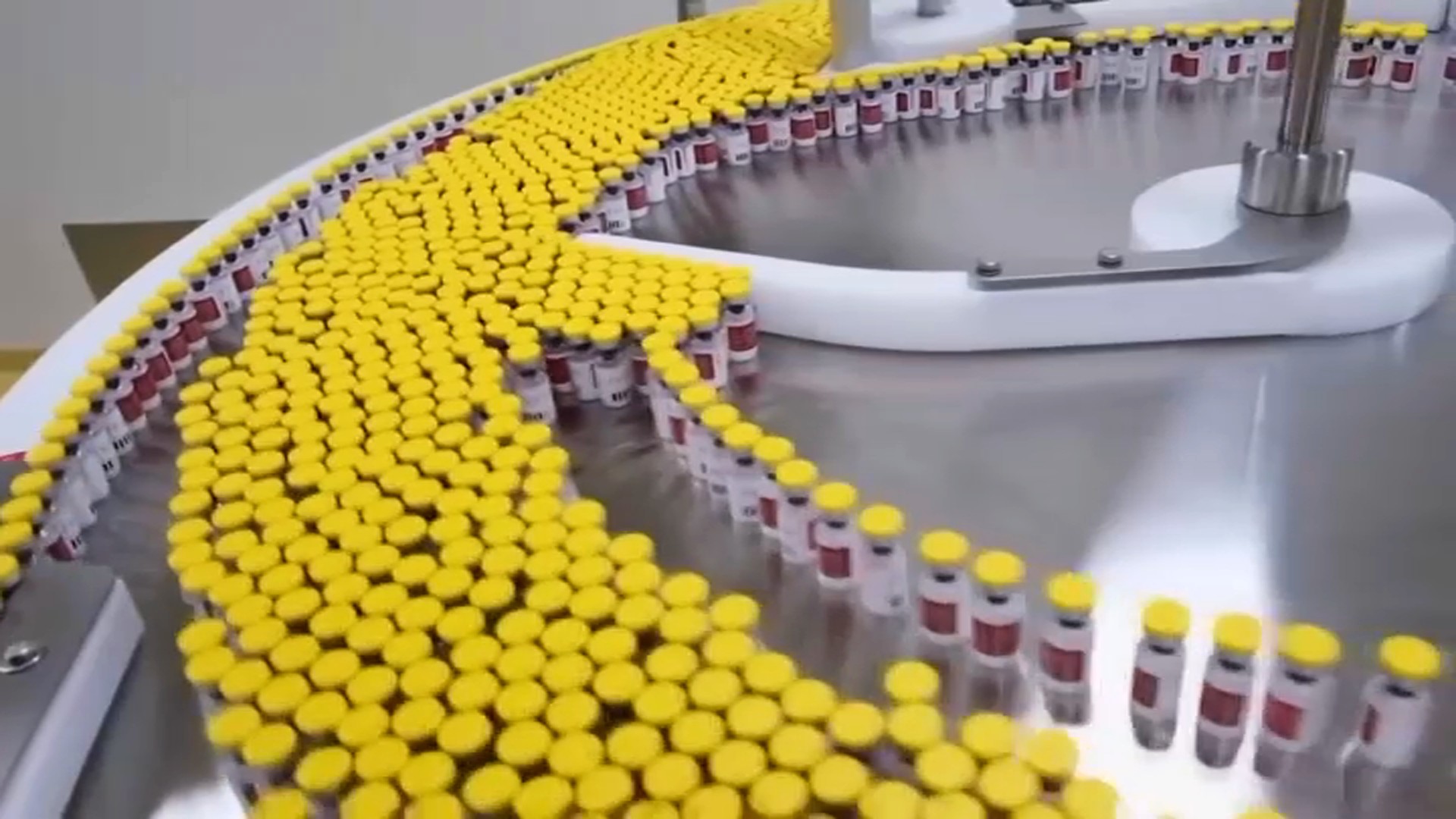What to Know
- New York Gov. Kathy Hochul issued an executive order declaring a state disaster emergency in response to the monkey outbreak, as the state has become the epicenter of another health crisis
- NYC topped 1,000 confirmed monkeypox/orthopoxvirus cases and then some this week and now accounts for 27% of the largest-ever U.S. outbreak of the disease, which is typically confined to the African continent
- NYC Mayor Eric Adams applauded the state health commissioner's previous threat response to the outbreak, adding that a state of emergency declaration is under consideration for the city
As New York has become the epicenter of another health crisis, the governor is taking action in order to ensure the state gets as much help from the federal government as possible to help control what has become the largest-ever monkeypox outbreak in America.
Late Friday night, Gov. Kathy Hochul issued an executive order declaring a state disaster emergency in response to the outbreak. In addition to allowing the state to act more swiftly in getting the necessary supplies, it also allows health car professional to take more steps that will get more New Yorkers vaccinated.
"After reviewing the latest data on the monkeypox outbreak in New York State, I am declaring a State Disaster Emergency to strengthen our aggressive ongoing efforts to confront this outbreak," Hochul said. "More than one in four monkeypox cases in this country are in New York State, and we need to utilize every tool in our arsenal as we respond. It's especially important to recognize the ways in which this outbreak is currently having a disproportionate impact on certain at-risk groups."
Get Tri-state area news and weather forecasts to your inbox. Sign up for NBC New York newsletters.
More health care professionals will now be able to administer the monkeypox vaccines, according to the state, as EMS, pharmacists and midwives will be able to give out doses. Health care providers will also now send vaccine data to the state health department, as the emergency declaration should cut some of the red tape and speed up re-supplying efforts.
The emergency declaration comes as the state has 1,383 cases as of Friday, according to the New York State Department of Health. The vast majority of those cases can be found in New York City — with at least 1,289 cases, up a few dozen cases after the previous days' report ballooned nearly 200 from two earlier. That total, widely believed to be significantly underreported, still accounts for a quarter of the burgeoning national caseload.
"My team and I are working around the clock to secure more vaccines, expand testing capacity and responsibly educate the public on how to stay safe during this outbreak," Hochul said.
A new breakdown of the suspected positives reflect a lion's share of the cases are in people living in Manhattan, where just over 50% of cases have been discovered.
Given the dramatically high number of cases found in the five boroughs, NYC may soon declare a state of emergency for itself, as the city accounts for more than a quarter of all monkeypox cases nationwide.
Questioned Friday morning during an unrelated media briefing, Mayor Eric Adams said the city's health commissioner is making a determination whether the city should declare such an emergency that would free up additional resources in the city's overall response. Adams also downplayed reports that one top scientist got kicked to another department in a dispute over messaging.
"About the personnel that was transferred, we don't about it, but we do it in a fair way," the mayor said.
Such a declaration has plenty of support from local politicians, including a number of Manhattan representatives who expressed concern over further spread of the virus once the city's 1 million college students resume instruction next month. They applauded Thursday's imminent threat declaration by the state health commissioner to open funding opportunities for local governments, but said the move was insufficient.
"A state and local declaration of emergency will help facilitate disaster response efforts by cutting the red tape standing in the way of effective and speedy distribution of testing, treatment, and vaccines," state Senator Brad Hoylman, Congressman Jerry Nadler, Assemblymember Deborah Glick, Assembly Health Chair Dick Gottfried, Assemblymember Linda Rosenthal, and NYC Council Member Erik Bottcher said in a statement.
U.S. Sen. Chuck Schumer announced Thursday that 80,000-plus monkeypox vaccine doses, or more than 10%, of 786,000 additional vials from the federal stockpile will go to the five boroughs. New York state will get another 30,000, Schumer said.
The doses are allocated based on case burden and high-risk population, according to the senator, so the heavily weighted allocation for New York comes as no surprise.
Thousands of vaccine appointments are continuously being scooped up within a half-hour of opening, and the state has warned New Yorkers in recent allocation rounds that they may be insufficient to cover everyone eligible who wants one.
Thursday's federal stockpile release is part of a series of intensifying efforts to contain America's still-growing and already largest-ever monkeypox outbreak. Anyone can get the disease, but the vaccine already exists, unlike with COVID-19.
"As we learned throughout the pandemic, vaccines not only save lives, but they contain the spread of the virus. Containing Monkeypox, our latest public health challenge, demands the same kind of resolve and focus," Schumer said. "For weeks, I have been on the phone with each and every agency working to overcome monkeypox. We know our biggest hurdle right now is that we need more vaccines, and I’ve told the FDA, we need those vaccines in New York state."
Calling the latest allocations a "big win for public health, and New York," Schumer acknowledged more work must be done, "but today marks a critical step in that fight and delivers a huge sigh of relief to New Yorkers waiting for their monkeypox vaccine. More are on the way."
While Hochul cheered the additional vaccine doses coming to her state, she added that the vaccines "will be delivered over the next four to six weeks" throughout the state.
Also on Thursday, New York State Health Commissioner Dr. Mary Bassett declared monkeypox an imminent threat to public heath, which will allow local health departments will have access to reimbursement from the state after other federal and state funds get depleted.
As for surrounding states, New Jersey Gov. Phil Murphy wrote a letter to the federal government earlier in the week asking for more vaccine doses, pleading that his state had not been giving its fair share. He also announced two new vaccine sites in Bergen and Camden counties.
Meanwhile in Connecticut, Gov. Ned Lamont said he’s confident the virus can still be contained — especially compared to COVID — if states get the resources they need.
"When New York City sneezes Connecticut catches a cold," he said. "I believe this will be a narrower population much less likely to be transmitted broadly but be careful."
As of Thursday, the CDC reports 4,639 confirmed monkeypox or orthopox virus (the same family) cases across the United States. Alaska, Vermont, Wyoming and Montana are the only four states without a confirmed case, though that doesn't mean monkeypox isn't already spreading in those areas.
Earlier this week, Dr. Anthony Fauci called the outbreak a "serious problem" said the White House was considered establishing a monkeypox coordinator role similar to its COVID one to streamline response, distribution and other outreach efforts.
MONKEYPOX IN NYC
The New York State Department of Health listed steps people should take in order to help prevent the spread of monkeypox:
• Ask sexual partners whether they have a rash or other symptoms consistent with monkeypox.
• Avoid skin-to-skin contact with someone who has a rash or other monkeypox-related symptoms.
• Contact a healthcare provider following exposure or symptoms, and check with your local county health department about vaccine eligibility.
• New Yorkers who receive the JYNNEOS vaccine should receive both doses, given four-weeks apart, and stay vigilant until fully vaccinated, two weeks following the second dose.
• If you or your healthcare provider suspect you may have monkeypox, isolate at home. If you can, stay in a separate area from other family members and pets.
• Follow reputable sources of health information, including NYSDOH, CDC, and your local county health department.




